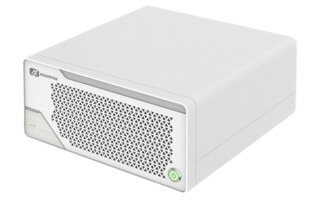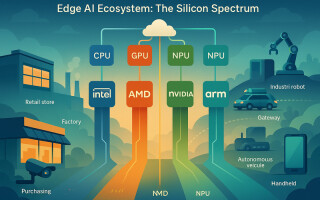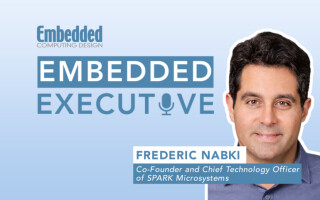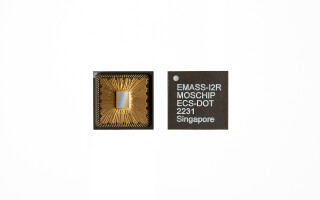Why You Should Get Involved With a Local Hackerspace, Makerspace, or Other Technical Organization
December 10, 2021
Blog
I’ve been a member of the Tampa Hackerspace (THS) organization for several years. It’s been an important resource for me, and the connections I’ve made there have been valuable on many occasions. If you’ve been on the fence about joining such a space, I’d encourage you to do so. If you need a little push, or if you’re not sure about the whole concept, read on!
Image Credit: Jeremy Cook
What is a Hackerspace?
On the surface, you might say a hackerspace, or makerspace, is a “gym for technically minded people,” where members pay a monthly or yearly rate for access to tools, and an area in which to use them. This might include an array of 3D printers, CNC machinery, laser cutters, woodworking implements, and more, allowing one to create in ways that would be impractical and/or cost-prohibitive if going at it alone.
Caption: Advanced embroidery machine: also quite appropriate at THS
Image Credit: Jeremy Cook
This community tools model means that something you’d use once every 2 years or so can be shared between a number of members who collectively make good use of these resources. Additionally, training is generally available (and hopefully required) to encourage proper and safe use of the tools. Excellent equipment attracts membership, and is useful, but I don’t think it’s the most important resource of such an organization. I’d argue it’s the people themselves.
Caption: No, you can’t use the jointer without taking a class
Image Credit: Jeremy Cook
Amazing Networking Opportunity
What’s interesting about THS–and I assume about most similar organizations–is that you get an incredible mix of people, with a wide range of talents and ideas. Backgrounds, personalities, and abilities vary, but the common thread running through members is a technical curiosity, along with a general need to create.
While some people simply join and use the tools, they may miss out on a sense of community and networking that I find extremely valuable. Personally, there have been many times when I’ve been stuck on a problem that was a little out of my wheelhouse, and a member was able to point me in the right direction. THS also offers classes, often including a fee for instructors and/or materials, which can be a great resource for pursuits that require more than a casual conversation.
As a personal example, the solder connections on my JC Pro Macro 2 board can largely be attributed to a suggestion someone made at an “open make night.” At this weekly event, members and non-members gather to mingle, make, and discuss ideas. I’ve gotten solutions by way of THS to technical problems as varied as setting up a Linux machine, getting concrete to properly release from a 3D-printed mold, and what Apple notebook to buy.
Caption: Ben Um, woodshop steward, experienced programmer, and the person who pointed me in the right direction when purchasing an Apple computer
Image Credit: Jeremy Cook
Of course, I’m not the only one benefiting from THS. Miles Space, a space propulsion and communications company was formed with the help of connections formed there, as was Tampa Deep Sea Xplorers, focused on autonomous underwater vehicles. A friend of mine recently changed jobs based on THS networking, and I assume there are many such scenarios that I don’t necessarily hear about. In fact, if I was seeking employment, putting out feelers with the membership of THS is probably one of the first places where I would look.
Caption: Dive helmet model, created by Deep Sea Xplorers founder Ed Larson
Image Credit: Jeremy Cook
I don’t mind paying their rather reasonable ($50/month or $500/year) membership fee, which can potentially be a business expense or charitable contribution. In fact, I value it to the point that I was willing to support THS during the COVID pandemic closure and restrictions, when the physical space was largely useless to me. Of course, I’m not the only one. While there was some drop in membership during this time, most members maintained their status, willing to help weather the proverbial storm. It’s fantastic to see how much people value this community, even when the benefit of the space and tools was largely in the future.
Makerspace, IEEE, ASME... Toastmasters?
If there’s not an active hackerspace in your area, there may be other organizations where you can get involved. IEEE and ASME come to mind, but even other tangentially related organizations, such as Toastmasters, might be a valuable option. In some cases, multiple groups could even be beneficial. Of course, you could always start a hackerspace yourself, though doing so would certainly be a huge commitment.
Caption: A massive workspace is never a bad thing, nor is often having company to offer advice and/or assistance.
Image Credit: Jeremy Cook
The important thing, with such an organization, is to really get involved, and to get to know others with whom you can learn, network, and upgrade skills. At the very least, you’ll get to talk to interesting people, and it could provide a huge boost to your skills and career. For that matter, you can hopefully provide your unique expertise and experience to guide others as well!
Jeremy Cook is a freelance tech journalist and engineering consultant with over 10 years of factory automation experience. An avid maker and experimenter, you can follow him on Twitter, or see his electromechanical exploits on the Jeremy Cook YouTube Channel!




